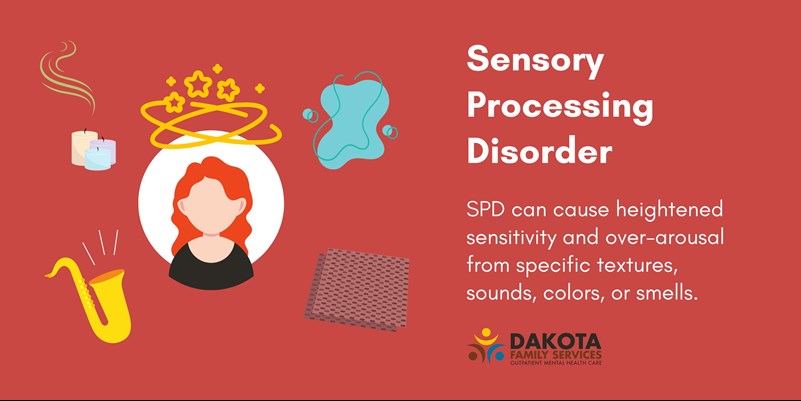Sensory Processing Disorder (SPD)
Definition
Sensory processing disorder (SPD) is a neurological disorder that affects how a person's brain processes sensory information. People with sensory processing disorder tend to be easily distracted or "over-aroused" by their senses. They may be very sensitive to certain textures, sounds, colors or smells; and be susceptible to disrupted motor abilities, behavior, and learning.
SPD can affect anyone, but it is especially prevalent in children and can affect their ability to pay attention, control behavior, and relate to others in social situations. Occupational therapy is useful in treating SPD.
Common Myths About Sensory Processing Disorder
Myth #1: Sensory processing disorder is a form of ADHD.
While it's true that both ADHD and SPD are conditions that involve trouble paying attention, they are actually two different conditions with different causes. People with ADHD tend to be hyperactive; those with SPD do not. Additionally, while some people with ADHD also have difficulty processing sensory input, this is not true for everyone who has ADHD.
Myth #2: Sensory processing disorder is not real.
SPD is real and is caused by the brain misinterpreting information from the senses. The brain can't process this information correctly, which can make everyday experiences feel overwhelming.
Myth #3: There's nothing you can do about sensory sensitivity.
While it’s true there is no cure for SPD, you can learn to cope with your sensitivities. These include avoiding environments that trigger sensory overloads and using coping strategies like deep breathing or mindfulness meditation.
Our Approach to SPD at Dakota Family Services
Once children with sensory processing disorder have been accurately diagnosed, they benefit from a treatment program of occupational therapy (OT) with a regulation, relationship, and sensory integration (SI) approach. The idea behind SI therapy is that specific movement activities, resistive body work, and even brushing of the skin can help a child with sensory problems experience an optimal level of arousal and regulation. Dakota Family Services has an occupational therapist on staff who can work with children with sensory processing disorder.
More Resources:
- National Center for Learning Disabilities (NCLD) - Provides information on sensory issues and how they can interfere with learning and behavior through its Understood web portal.
- STAR Institute for Sensory Processing - Nonprofit dedicated to improving the quality of life for children, adolescents and adults with SPD, and their families by providing comprehensive assessment, research, education for caregivers, and advocacy for recognition of SPD worldwide.
- Sensory Processing Disorder Parent Support - Online support resource with information on sensory processing issues, including retailers, advice and therapies.
- SPD Support - National network of parent volunteers who share information, spread awareness and provide support to SPD families. Includes an online forum where parents can post questions and resources.


